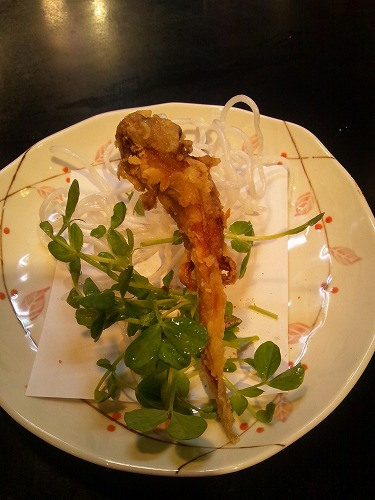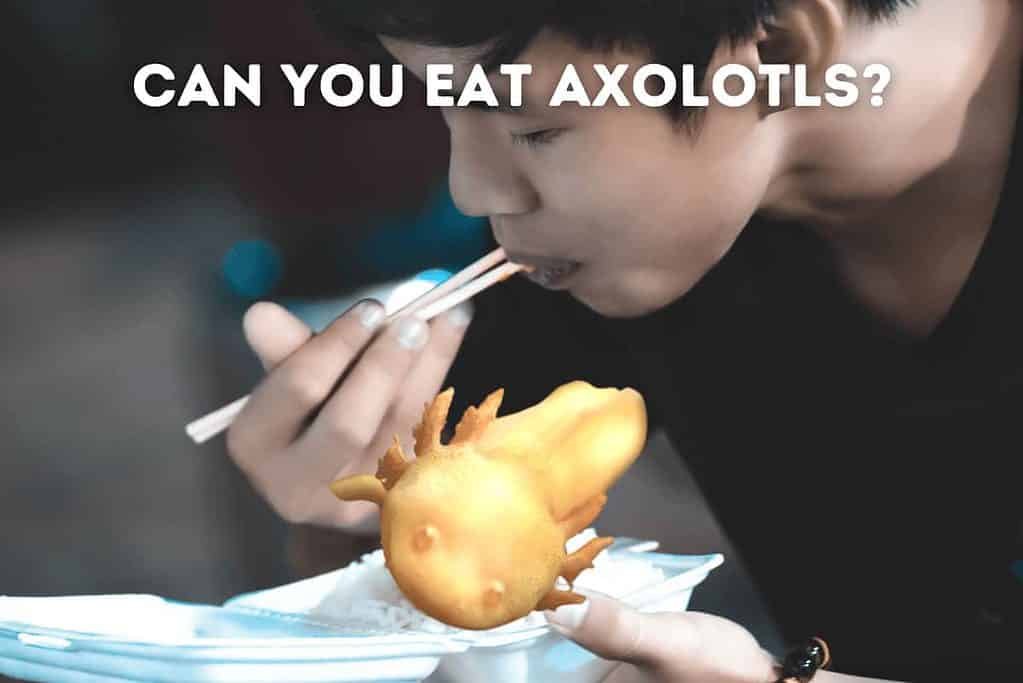No, axolotls are not typically consumed as food. Axolotls are not commonly eaten as they are a type of amphibian often kept as pets due to their unique appearance and interesting characteristics.
Native to Mexico, axolotls are critically endangered in the wild and protected by law. They are primarily carnivorous and feed on small aquatic creatures such as insects, crustaceans, and mollusks. While their meat is not toxic, it is not customary or recommended to eat axolotls.
Instead, they are appreciated for their beauty and studied for their regenerative abilities, making them an intriguing species to keep as pets or in captivity for scientific research.

Credit: soranews24.com
What Are Axolotls?
Axolotls are fascinating creatures with unique characteristics. They have an interesting history and stand out due to their distinctive features. Axolotls have captured the attention of many people around the world. These creatures are native to Mexico, where they were considered a delicacy in the past.
However, today, axolotls are protected and are not commonly consumed. They are often kept as pets or in research laboratories due to their regenerative abilities. Axolotls have the ability to regenerate lost body parts, including limbs, spinal cord, and even parts of their heart and brain.
Their external gills and permanently juvenile appearance make them a captivating species. Axolotls are not typically a part of the human diet, but they are certainly an intriguing and unique species worth learning about.
Can You Eat Axolotls: A Myth Or A Possibility?
Axolotls, also known as Mexican salamanders, have gained popularity as pets in recent years. However, their status as a traditional Mexican delicacy has sparked debates about whether they can be consumed. Axolotls have cultural significance in Mexican cuisine, with some traditional dishes featuring them as an ingredient.
In recent times, there has been a surge in the consumption of axolotls, driven by both curiosity and the desire to try exotic food. Nevertheless, ethical considerations and conservation efforts have raised concerns about the impact of consuming these unique creatures.
As a result, the practice is increasingly facing criticism and calls for the protection of axolotls in their natural habitat. While the idea of eating axolotls may be intriguing to some, it is important to understand the potential consequences and take into account the efforts being made to preserve these fascinating species.
The Nutritional Value Of Axolotls
Axolotls, also known as Mexican salamanders, are a fascinating aquatic creature with a distinctive appearance. Many people wonder whether they can be consumed as food. Let’s delve into the nutritional value of axolotls and explore their diet and natural habitat.
Axolotls have a nutrient composition that makes them a potential source of beneficial elements. They are rich in proteins, essential amino acids, and low in fat content. Consuming axolotls can contribute to a healthy diet due to their high protein content.
Comparing axolotls to other edible aquatic creatures, they offer unique health benefits. However, it is important to note that axolotls are endangered and considered a delicacy in some regions. Sustaining their population in their natural habitat is crucial for their survival.
In conclusion, while eating axolotls may provide nutritional benefits, their conservation should take precedence to protect this unique species.
Axolotls As Pets Vs. Food
Axolotls are unique and popular pets due to their fascinating appearance and low-maintenance care. Caring for these aquatic creatures in captivity requires a suitable tank environment, including clean water, appropriate temperature, and proper filtration. While enthusiasts enjoy having axolotls as pets, consuming them as food poses significant challenges.
Sourcing and preparing axolotls for consumption is not only difficult but also raises ethical concerns. The legality of trading and consuming axolotls varies across different regions. It is important to consider local regulations and guidelines before attempting to consume axolotls.
As these creatures are often kept as pets, many people find it more rewarding and enjoyable to appreciate their beauty rather than considering them as a source of food.
Frequently Asked Questions Of Can You Eat Axolotls
Can You Eat Axolotls As Food?
Axolotls are not commonly eaten as food. They are a species of salamander that are considered critically endangered in the wild. Axolotls are mainly kept as pets or used in scientific research due to their unique regenerative abilities. It is important to protect and preserve these fascinating creatures rather than consume them.
Conclusion
While axolotls may be considered a delicacy in some cultures, it is important to approach the idea of eating them with caution and consideration for their endangered status. Axolotls play a critical role in maintaining the ecosystem of their native habitats and are an important part of scientific research.
Additionally, they possess unique regenerative abilities and have rapidly become popular as pets. While there has been limited documentation of axolotl consumption throughout history, the practice remains controversial and is not widely accepted or practiced. It is important to respect and protect these remarkable creatures to ensure their survival and the balance of our natural world.
Rather than considering them as a food source, it is recommended to appreciate and admire the axolotl for its natural beauty, fascinating biology, and contribution to scientific advancements. By doing so, we can play a part in preserving this extraordinary species for future generations to enjoy and study.
